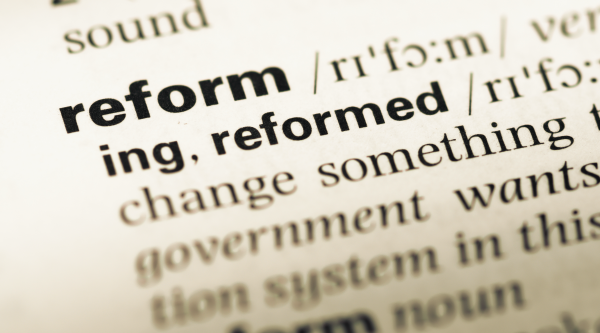The inevitability of reform of the Prostheses List cannot realistically be in question given what was announced in the 2021-22 Budget. The only issue yet to be resolved is the nature of that reform.
The Budget included $23.1 million over four years from 2021-22 to "modernise and improve the administration of the Prostheses List."
Does anyone really believe the Department of Health was 'gifted' this money for an exploratory exercise?
It is a very significant sum for a reform process so it is clearly 'on the hook' to return some money to the federal government's Budget, presumably in the form of reduced spending on the Private Health Insurance Rebate.
The debate over reform is public and unusually fierce.
Health minister Greg Hunt, who can hardly be described as a system-level reformer, is caught between stakeholders who appear to agree on very little when it comes to the detail of any reform.
The debate is significantly characterised by claims, counter-claims, distractions and internally inconsistent arguments.
Ongoing lockdowns and yesterday's announcement of another halt on some elective surgery in New South Wales shows it is far too early to criticise private health insurers over the Deferred Claims Liability (DCL).
In the early period of the pandemic, the prudential regulator essentially directed private health insurers to establish a DCL. The assumption was that the halt to elective surgery was deferring claims for procedures. It is not a profit or a windfall.
Some insurers have already returned their DCL while others are waiting. The prudential regulator has endorsed this approach given the ongoing uncertainty of the pandemic.
This is set against the backdrop of a health insurance sector that is significantly 'private' in name only. Its products are regulated. Its prices are regulated. In reality, its balance sheets are effectively regulated in a way few understand. Even the discounts and incentives it can offer are regulated. The prudential regulator will coerce or even direct the insurers on their DCL in the way it does, if that is required, when it believes the time is right.
The debate over the DCL is important but it is really just a distraction. As an aside, should the focus actually be on the worrying fact the expected 'deferred' claims are yet to materialise? Where are the procedures and what is the impact on patients?
It is a reflection of the fact patients are often forgotten in a system that sometimes appears more focused on 'health financing' than actual 'health'.
There are some other issues that probably need to be addressed as part of the reform process.
Of course, private health insurance customers will need to be reassured that any reform will not undermine their ability to access the latest health technologies and interventions.
We have seen the impact of Australia's health technology assessment process on medicines. New generation platforms like gene and cell therapies are struggling to navigate these decision-making processes. It is undesirable and hard to observe given at least one therapy currently held up is potentially curative for newborns suffering from a terrible hereditary disease.
The type of product-by-product health technology assessment process applied to medicines is really not suited to medical devices because of the vastly different approaches to development and lifecycles.
Yet it cannot be argued that a form of health technology assessment cannot be applied to medical devices or that government, payers and consumers should not benefit from competition, transparency or substantial price reductions over time.
The challenge for the medical device sector, and one it is yet to address, is the claim Australia is paying higher prices for its technologies than comparable countries. The suggestion is that Australia's private system is even paying more than its own public system.
This is not to argue for a standardised approach to international pricing but the claimed differentials identified are significant and that makes reform inevitable. The only outstanding question is what form will it take?
